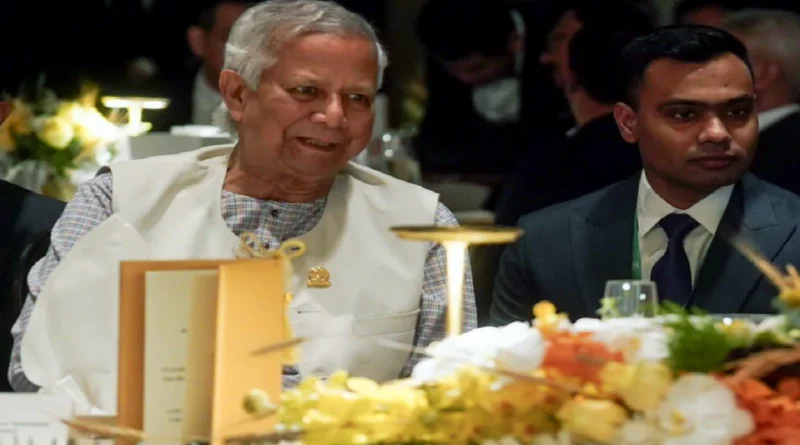Bangladesh’s Economic Integration Proposal Stirs Controversy, Raises Concerns Over India’s Northeast States
In a controversial move after the India-Pakistan ceasefire, Bangladesh’s Chief Advisor Professor Mohammad Yunus has once again brought up the issue of India’s northeastern states. He has proposed an economic integration plan that includes Nepal and Bhutan. During a meeting with Nepal’s Deputy Speaker in Dhaka, Yunus emphasized the importance of cross-border cooperation in areas like hydropower, healthcare, and transport infrastructure. He highlighted the need for deeper regional ties through shared projects, suggesting that Bangladesh, Nepal, Bhutan, and India’s Northeast should have an integrated economic plan.
The discussion particularly focused on hydropower cooperation between Bangladesh and Nepal. Both parties acknowledged the significance of the recently signed Bangladesh-Nepal-India trilateral electricity sales agreement. This deal enables Bangladesh to import 40 megawatts of electricity from Nepal using India’s power grid. Yunus also underscored Bangladesh’s efforts to promote regional healthcare, mentioning the upcoming 1,000-bed hospital in Rangpur, which will be open to patients from Nepal and Bhutan. This move, he argued, would strengthen regional health security and shared prosperity.
During a previous visit to China, Yunus tried to position Bangladesh as a major regional partner in trade, logistics, and manufacturing. Addressing Chinese officials, he pointed out the geographical challenges of India’s northeastern states, noting that they have no direct access to the sea. He referred to Bangladesh as the “sole custodian of the ocean” and encouraged China to collaborate with regional powers. Yunus suggested that products could be manufactured in Bangladesh and sold in China, while highlighting the hydropower potential of Nepal and Bhutan to meet their shared objectives.
Stay updated with International News in Hindi on Prabhasakshi

